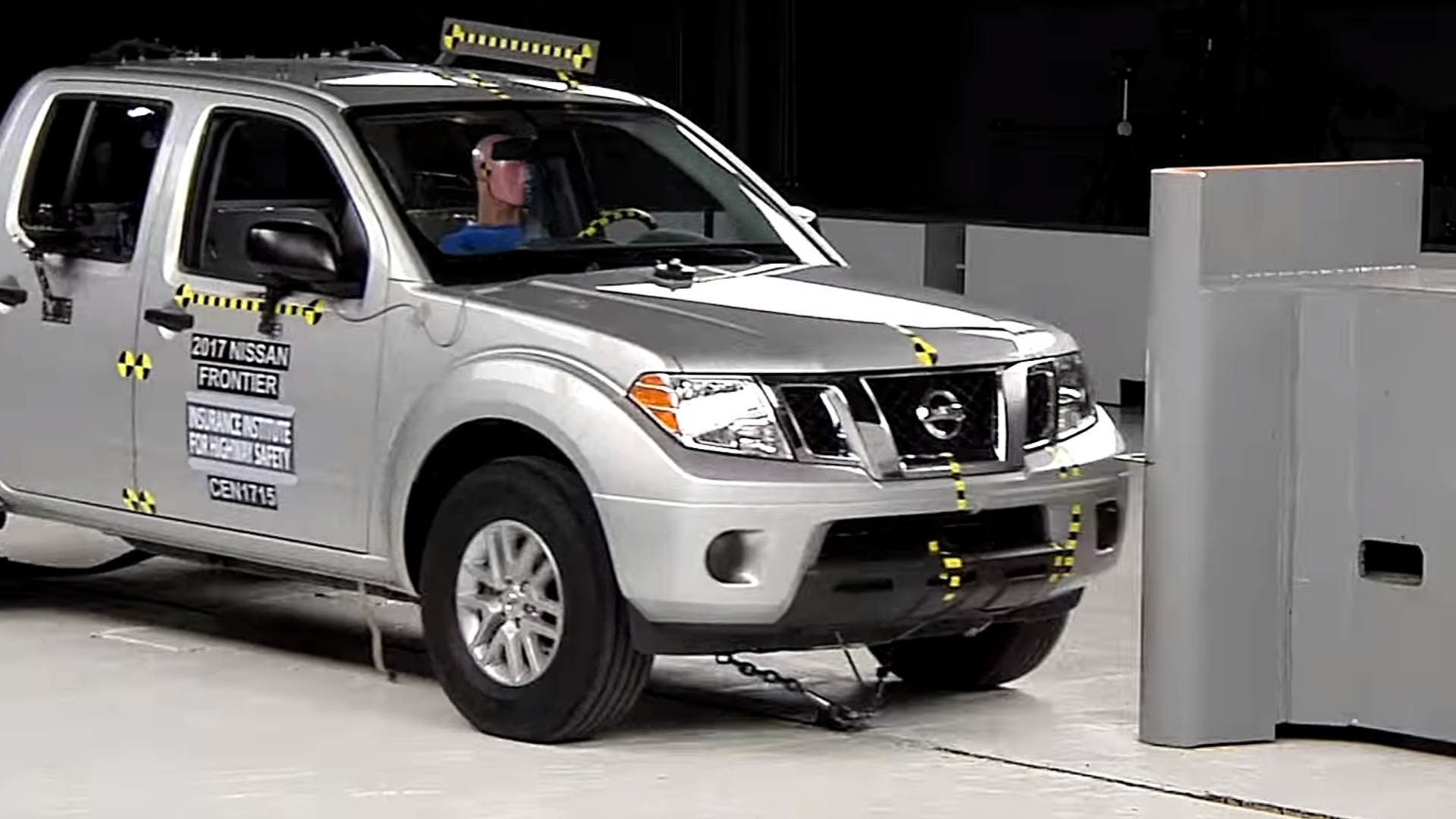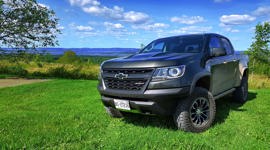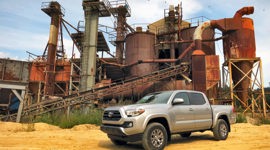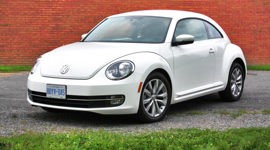Small trucks have scored poorly in the latest round of IIHS testing. Their latest look at four compact pickups gave only four of the eight trucks tested a top grade of good in crash testing. And none qualified for a Top Safety Pick award.
The Insurance Institute for Highway Safety (IIHS) is an independent group that is responsible for much of the crash test safety data we see. Winners of their Top Safety Pick broadcast loud and proud in advertising. They've been crashing cars for years, as well as introducing new tests that help improve crash safety.
The 2017 model year trucks tested include the Toyota Tacoma in double and access cab, Chevrolet Colorado and GMC Canyon both in crew and extended cab, and the Nissan Frontier in king and crew cabs. The Tacoma ranked good for crash test safety in both cabs. Colorado and Canyon also got a good rating, but for crew-cab models only. Extended cab models got a rating of acceptable, and the Frontier scored marginal in both versions.
Why the low scores? For the Colorado and Canyon, the IIHS found that there was too much intrusion into the driver footwell. That meant a poor rating for lower leg and foot protection. The crew cabs scored better in that area. The Frontier is an older design that also fares poorly for lower leg protection. The footwell was pushed back nearly 43 mm for crew cab and 36 mm for extended cab models. The IIHS said that "in a real-world crash like this, the driver would likely sustain serious injuries to the lower legs and left foot."
So why do the trucks with a good score not get a Top Safety Pick? Headlights and active safety.
Every one of the pickups ranked as poor for headlights. That test is new for last year but is a very important one for avoiding collisions in the first place.
It's much the same story for collision avoidance features. Only the Colorado and Canyon have an optional front crash warning system. None of the trucks offers automated braking collision avoidance technology, which can help stop the truck before the collision even happens.







